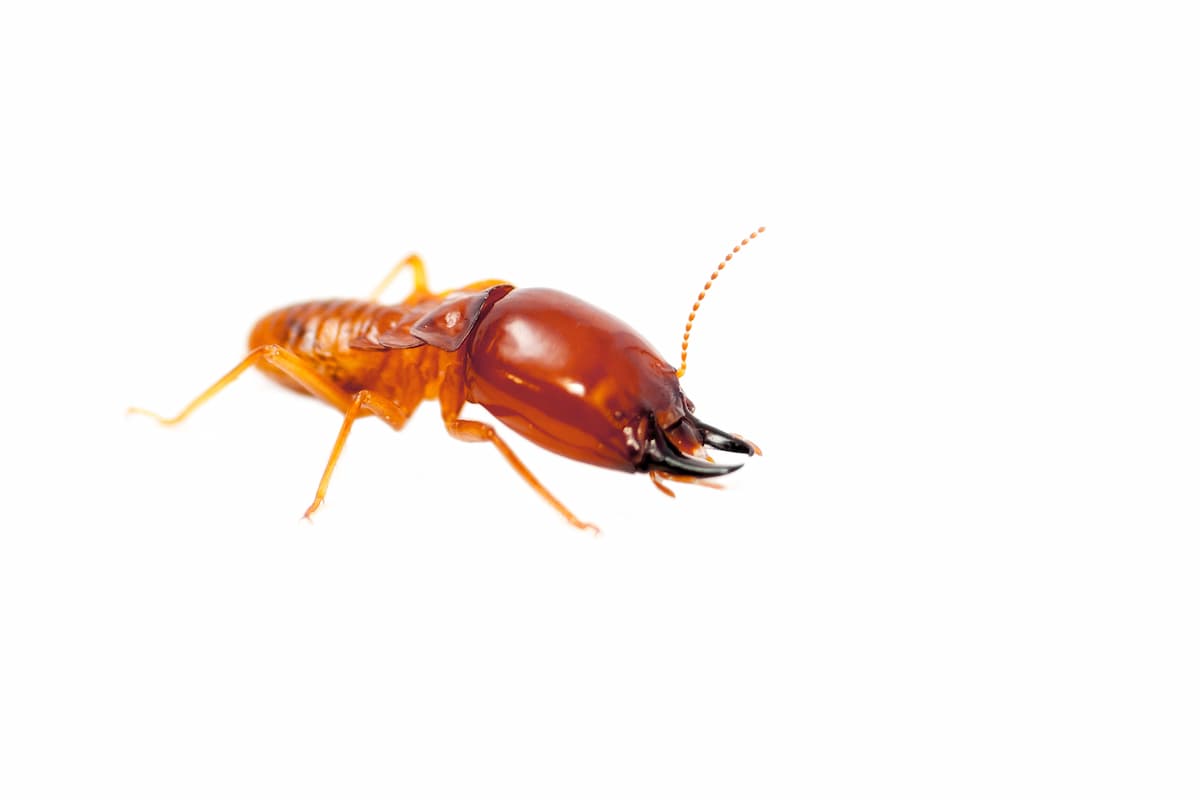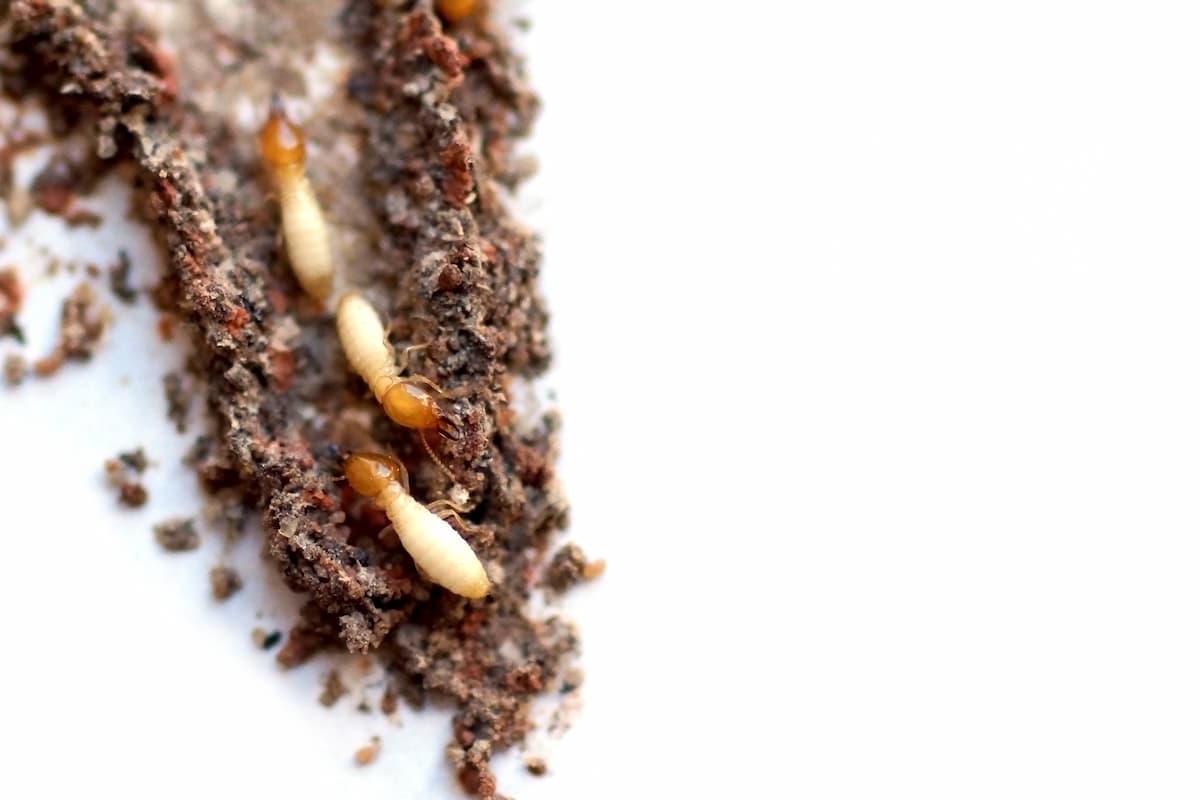Do Termites Make You Itch?
The mere thought of insects hiding in the walls is enough to make most people’s skin crawl.
Termites, in particular, are a nightmare for homeowners.
But can termites make you physically itchy?
It’s rare for termites to bite humans, but when they do, it can cause extreme itchiness, swelling, and searing pain. Generally, only worker termites will sting and only do so when threatened. Termites aren’t bloodsucking insects, so the only way they will bite you is if you handle them or stick a hand in their nest.
Health Concerns Surrounding Termites

While termites don’t pose a serious threat to people or pets, their presence can cause health issues. You’re more likely to be harmed by the byproduct of their activities rather than by the termites themselves.
That said, termite stings are incredibly painful. In the rare case that you get bitten by a termite, you should expect the area to swell, feel intense pain, and the bite to be very itchy.
Severe termite infestations can lead to cases of myiasis – the process by which houseflies deposit their larvae into a body, and the larvae feed on tissues.
This is an incredibly rare but serious risk of letting a termite infestation carry on too long.
There are many more common health risks associated with termite infestations.
Termite fecal matter is harmful to humans. Contact with the skin can cause irritation, itchiness, rashes, or induce an allergic reaction.
In the case of an allergic reaction, it may not cause inflammation. Instead, it will make the affected area itchy or cause a rash.
Asthma and asthmatic symptoms are other concerns associated with termites.
The damage termites do to the wood in your home can allow mold to grow. Mold spores can enter the air and trigger asthma in asymptomatic people, worsen asthma, or cause asthmatic symptoms.
Symptoms of mold exposure can include migraines, coughing, runny nose, and difficulty breathing.
Along with asthmatic symptoms, mold spores from termite damage can lead to chronic respiratory infections. This is especially prevalent in children, the elderly, and those with chronic lung diseases.
Even healthy people may end up wheezing and coughing.
Another threat from termite damage is the risk of electrocution.
Termites can chew through electrical wires and cause short circuits around the home. They like spaces like wall outlets for nests and can devastate your wiring, leading to pretty nasty shocks.
Finally, in rare cases, termites can transmit some diseases to humans.
Is It Okay To Live With Termites In Your Home?
While termites don’t normally harm humans directly, living in a home with termites is not advisable.
Aside from possible health impacts, you also have to consider the structural damage they can cause to your home.
Some signs of a termite infestation include sagging walls, floors, and ceilings. Given time, this can weaken the structural integrity of your home.
With sagging floors, you risk stepping on a weak spot and falling through. Ceilings and walls can also collapse from termite damage to the support beams.
If an infestation is left untreated, termites can weaken a home’s load-bearing walls, causing the entire building to collapse.
Despite the risks, termites are one of the most common pests in the world and one of the most treatable.
You don’t always have to leave your home just because you have termites, and living in the house during treatments may be okay.
The big thing to remember is that it isn’t okay to live in a home with termites and not do anything about them.
Cleaning and termite treatments can help mitigate the health risks mentioned, but structural damage usually happens slowly over time and must be repaired.
Early Warning Signs of a Termite Infestation

Termites can be hard to detect before they get established and start growing their colony.
That doesn’t mean it’s impossible, though, and there are indicators you can look for if you’re at risk for an infestation.
- The beginning stages of termite damage tend to look like water damage. Seeing ‘wet’ marks in a dry area could be a sign of termites.
Check that area for small black spots. These could be termite droppings, another sign that termites have entered your home.
- If your doors or windows seem hard to open, it might not be because of weather or pressure changes. It could be an early warning sign of a termite infestation.
The softer wood of these structures is perfect for termites to bore tunnels through, causing them to be off-center and harder to move on hinges.
- If you knock on wood around your home and it sounds hollow when it shouldn’t, it could have been hollowed out by termites.
- Seeing what looks like white ants is a good indicator that termites are also in the home. People unfamiliar with termites can easily confuse them for white ants.
Ants aren’t ever actually white, but termites almost always are.
These early signs of an infestation are harder to notice than signs of an established termite colony. In the early days, you might not be able to find mud tunnels, nesting sites, or discarded termite bodies.
It takes time for termites to damage structures enough to sag. Eventually, drywall will seem droopy, and ceilings or floors could also begin to squeak or sag.
The biggest sign of an established infestation is seeing termites walking around.
Eliminating and Preventing Termites
Termites need to be eliminated as soon as possible as they can severely damage your home and can be the root cause of serious health issues.
The best way to get rid of termites is to call a pest professional. They will be able to gauge the size of the infestation, find the termite nest, and eliminate the colony.
They can then provide plans for preventing another infestation in the future.
If you want to try and eliminate termites on your own, a few DIY options are available.
Insecticides are an effective way to kill termites.
Liquid treatments should be used inside of nests to ensure deeper penetration. You can also buy termite bait stations and place them near nests and around your home.
Bait stations use a poisoned piece of wood or paper as bait to lure in termites. The poison is slow-acting, so the termites have time to take it back to their colony and feed other termites.
The treatment can effectively eliminate full colonies of termites but takes time. Generally, you won’t see results for up to two weeks.
Conclusion
Termites can make you itch, whether from biting and stinging or from causing allergic reactions and dermatitis.
It’s rare for termites to bite people, but they will do so when threatened.
Most of the risks associated with termites happen because of the termite’s activities, such as structural damage to your house, rather than the insects posing a significant threat directly.
